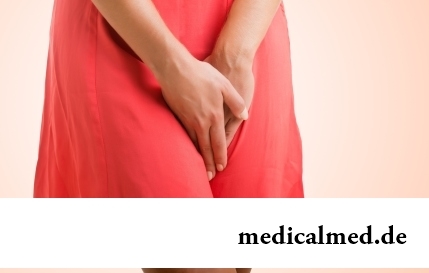





Modern antibiotics: efficiency and side effect
The drugs stopping or oppressing life activity of pathogenic microorganisms are widely applied in clinical practice from 40th years of the last century. Originally antibiotics were called only substances natural (animal, vegetable or microbic) origins, but over time this concept extended, and it includes also semi-synthetic and completely artificial antibacterial drugs.
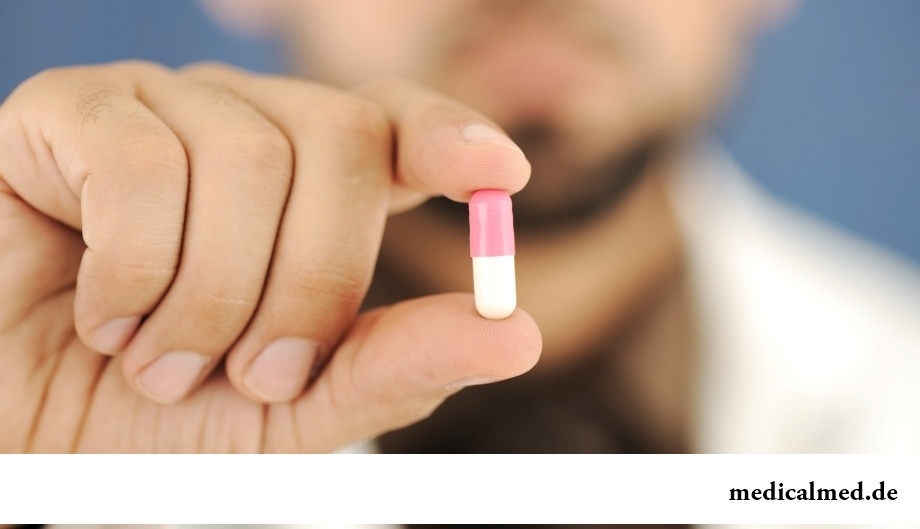
Use of antibiotics in therapy of various diseases
Today more than 2000 substances capable to destroy causative organisms are known or to slow down process of their reproduction, but as drugs about 50 of them are used. From the moment of the beginning of mass production of penicillin (in 1943) drugs of similar action quite strongly changed. The researches aiming at the invention of new antibiotics went the next ways:
- Discovery of substances, active concerning several microorganisms (antibiotics of a broad spectrum of activity). The matter is that in many cases even specialists cannot precisely define what microbe caused pathological process (or the analysis such cannot be made quickly), and treatment has to be begun immediately in order to avoid development of heavy complications. In such situation antibiotics of a broad spectrum of activity are irreplaceable;
- The invention of the narrowly targeted drugs capable it is selective to oppress life activity of certain bacteria. If responsible for a disease is precisely known, there is a sense to apply that substance to which it is most sensitive. Besides, it is possible to choose that which will create the minimum side effects at the specific patient from a number of such means.
Over time scientists faced a problem of accustoming of infestants to antibiotics. The matter is that any of these substances does not kill all pathogenic microbes in an organism, and those from bacteria which survive, breed. The properties doing them insensitive (resistant) to effect of drug genetically are fixed in succeeding generations of bacteria. It turns out that disease medicine exists, but against the activator it is already not so effective. Therefore a considerable part of researches of the last years was directed to creation of the antibiotics capable to fight against new modifications of the known pathogenic microorganisms.
Many substances possessing bacteriostatic action are very toxic concerning cells of a human body or the useful microflora living in a digestive tract, respiratory tracts etc. Scientists worked also on reducing amount of side effects and to make use of antibiotics safer.
The drugs of new generation possessing a broad spectrum of activity are applied in therapy of respiratory diseases and urinogenital system, ENT organs, bacterial meningitis, diphtheria and other heavy illnesses. Narrowly targeted antibiotics help to struggle with such diseases which causative agents it is possible to define unambiguously (for example, with tuberculosis). By the way, in the field of the invention of antitubercular drugs significant progress on reduction of the general toxicity of medicines was made.
The dangers connected with treatment by antibiotics
In spite of the fact that many bacteriostatic drugs of the last generations do not make serious negative impact on a human body, reception of antibiotics did not become safer, than earlier. This paradox is connected, first of all, with the fact that drugs of similar action became too usual "inhabitants" of home first-aid kits. To a certain extent physicians also are guilty of it: within several decades they appointed antibiotics extremely actively, and sometimes without special need. As a result the reputation rather harmless and capable to cure anything was assigned to such drugs. Both lie. Antibiotics do not suit for therapy of flu, a SARS, hepatitises and any other illnesses of the virus nature at all. Patients, as a rule, do not know about it (by data VCIOM, nearly a half of Russians believes that seasonal viral infections are treated by antibiotics). This delusion is supported also by the fact that doctors really appoint bacteriostatic drugs when flu or a SARS is complicated by a consecutive bacterial infection. As for side effect of antibiotics, they can really cause allergic reactions, disturbances of work of a GIT, kidneys and some other internals. Levomycetinums, tetracyclines and antitubercular drugs in this respect are considered the most dangerous.
The main harm of use of antibiotics is connected not so much with their qualities how many with misuse of such means. For example, many Russians find it possible to appoint reception of antibiotics to themselves and the relatives without consultation with the doctor. Such position is wrong and extremely dangerous. If the drug used for self-treatment is not active concerning an infestant at all, the illness continues to develop, and the organism which is already weakened by a disease is exposed to additional negative impact of medicine. The means having a wide range of activity can be suitable in a specific case, but it is correct to define a necessary dosage and the mode of reception, without having special knowledge, it is impossible, and the instructions attached to drug are too general, and cannot consider specifics of a condition of each patient. Transition of a disease to a chronic form or development of complications can become result.
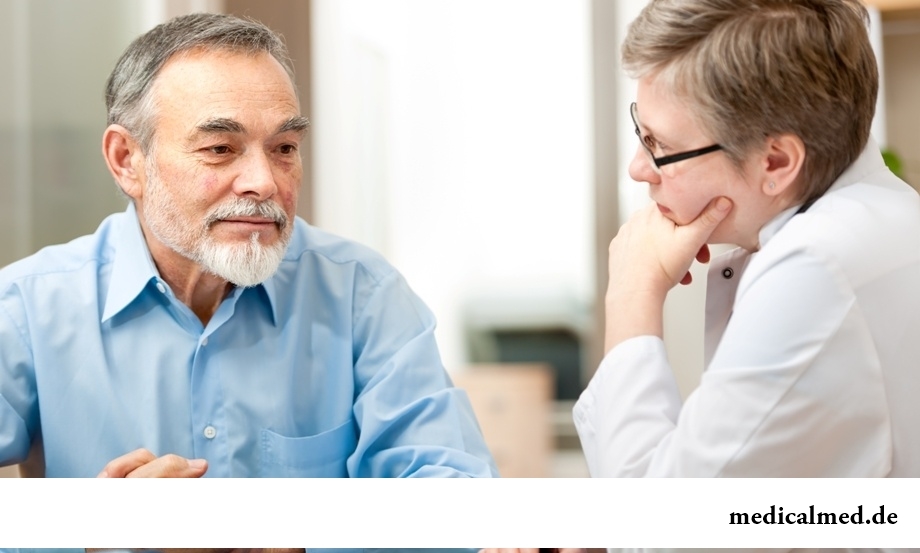
Sometimes it is difficult to understand the diseases caused by pathogenic microorganisms even to the specialist. Different illnesses have similar symptoms, and the same disease can arise owing to infection with various activators. Therefore no antibiotic can be accepted on the ground that it helped your friend (relative) or you "last time". Only the doctor can appoint such means, and the patient has to follow his recommendations steadily.
It should be noted one more nuance: uncontrolled reception of antibiotics does harm not only to fans of self-treatment, but also other people. The matter is that misuse of bacteriostatic means leads to distribution of pathogenic microorganisms, resistant (steady) against the existing drugs. And it means that patients who will be infected in the near future can not receive adequate treatment. Accepting antibiotics, it is necessary to remember not only about own health, but also some share of social responsibility which demands competent approach to treatment.
The liver is the heaviest body in our body. Its average weight makes 1,5 kg.

Any person who faced a disease knows that treatment costs expensive. It belongs also to consultations qualified the specialist...
Section: Articles about health
One of the useful properties presented to the person by the nature is ability to feel fear. This ability is designed to signal about approach of a dangerous situation and to help to avoid in advance it to keep life. However if the fear is persuasive and not about...
Section: Articles about health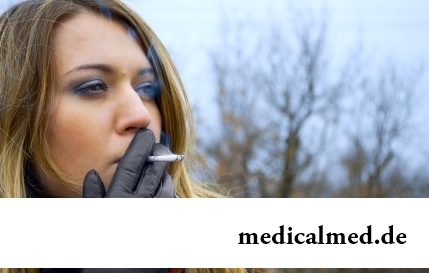
Dark circles (bruises) under eyes – a shortcoming with most of which often fight against the help of cosmetics (proofreaders, saloon procedures and so forth), eliminating only its visibility. However, according to doctors, skin around eyes – the indicator of many disturbances in an organism. To reveal them at early stages, without having disguised bruise, and having addressed its reasons – a task of each person who is regularly finding under with own eyes dark stains. Early detection and elimination of the disease lying in wasps...
Section: Articles about health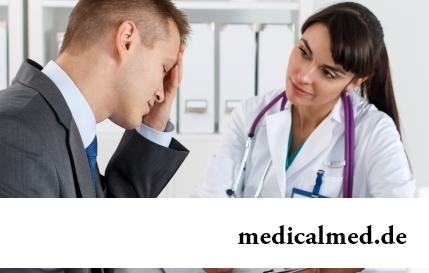
Popular joke that there are no healthy people, and is nedoobsledovanny, most of us considers an honest truth, and put that...
Section: Articles about health
Bathing in broths of medical flowers and plants (phytobathtub) was eurysynusic since Cleopatra who is a good judge in all that concerns beauty and health. And today phytobathtubs is the simple and available means allowing not only to remove nervous N...
Section: Articles about health
The popular expression "run from a heart attack" became the motto of the people supporting active lifestyle. Moreover, run became a peculiar fashionable tendency: sales of racetracks and the accompanying goods for run are at permanently high level. Whether really it is possible for one and all people and it is necessary to run to receive the portion of health, a charge of cheerfulness and good mood?...
Section: Articles about health
Within several decades of our compatriots convinced that the use of butter nasty affects on...
Section: Articles about health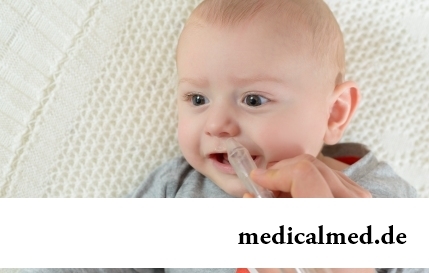
Maternal milk is the best food for the newborn. It is the unique natural product containing an optimum set of nutrients, and which is best adapted in order that the baby normally developed and it was protected from harmful fa...
Section: Articles about health
The business lady, the become mother, it is necessary to solve an array of problems. But of them is main: how to combine the beloved child and work? What traps trap the working mother and how she needs to behave?...
Section: Slideshow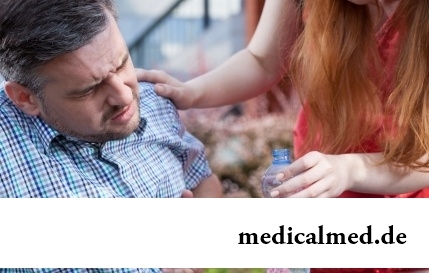
Each of us faces from time to time that other people need the immediate help. We react to it on-raznomu:...
Section: Articles about health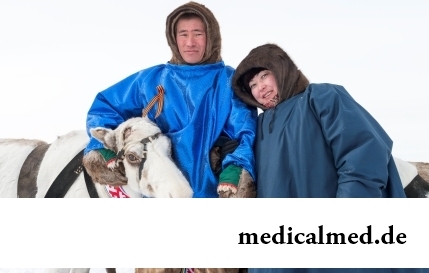
Traveling all over the world, many try to try the most exotic dishes of national cuisines. There is even a so-called gastronomic tourism which, according to gourmets, not only allows to receive new feelings, but also is capable to show life the friend...
Section: Articles about health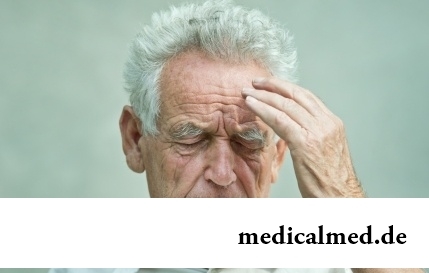
The person, as well as all other beings living on our planet feels weather changing. It is the normal meteosensitivity which is not causing to healthy people of special troubles. Meteodependence, on the contrary, is the morbid condition which is characterized by an exacerbation of chronic illnesses at change of air temperature, differences of atmospheric pressure, wind strengthening, magnetic storms and other "surprises" on which the nature is so generous. The people suffering from meteodependence have to з...
Section: Articles about health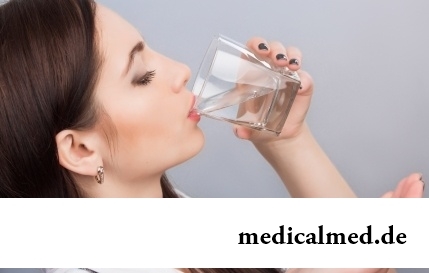
The phenomenon of improvement of a condition of the patients at administration of drugs who are not containing active agents, so-called effect of placebo is known...
Section: Articles about health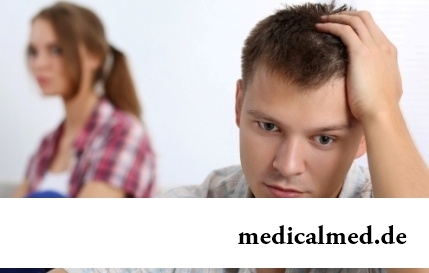
More than a half of the married couples which faced prostatitis – leave. The new broadcast "Female View of Prostatitis" will help to learn – whether you have or your relatives problems....
Section: Articles about health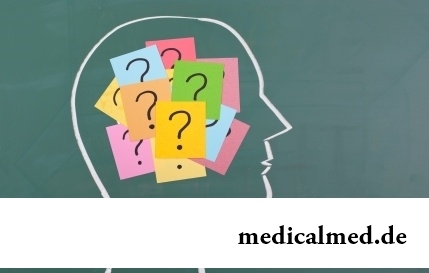
Memory is an ability of the central nervous system to fix, keep and as necessary to reproduce information on knowledge or skills received by the person or an animal during life. The mechanism of this process is up to the end not studied....
Section: Articles about health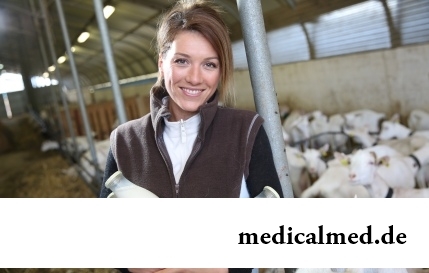
A little more than a century ago goat milk was a traditional food stuff of most of Russians. Unfortunately, today on tables...
Section: Articles about health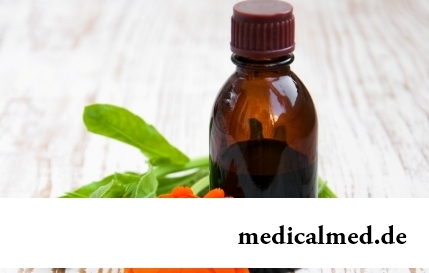
The cosmetics intended for improvement of a condition of skin, nails and hair are used by each woman. Expenses on regular acquisition of the fashionable widely advertized products of well-known companies for many become very notable and significantly to an obrema...
Section: Articles about health
A lot of things depend on a condition of a backbone in a human body, a backbone - not only a support for a body, it also a receptacle for a spinal cord, that is why malfunctions with a backbone are so dangerous. To treat rachis diseases very difficult and long, it is much simpler and more correct not to bring to a disease. Conforming to the rules provided in this article it is possible to avoid the majority of the problems connected with a backbone including those which are considered to be age, but a cat...
Section: Articles about health
Life activity of one-celled fungi of the sort Candida is a proximate cause of development of candidiasis (milkwoman), it is related...
Section: Articles about health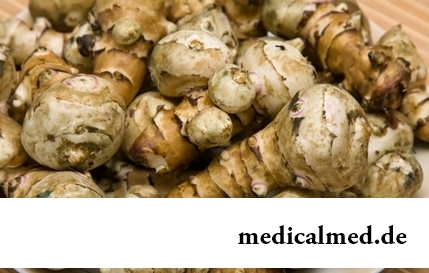
At this plant there are a lot of names: tuberiferous sunflower, Jerusalem artichoke, solar root, earth pear. Contrary to popular belief, it is not an exotic plant at all. The wild girasol grows in a midland of Russia practically everywhere: at the edges of roads...
Section: Articles about health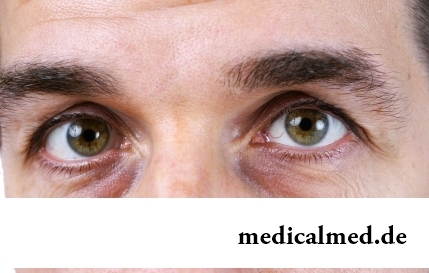
Zone hypostases under eyes - very widespread problem giving to people is a lot of inconvenience. Hypodermic fabric in these parts has very loose structure and almost does not contain collagenic fibers. Besides, the skin covering подглазья constantly is exposed to compression and stretching when the person blinks, blinks, etc. These features also create premises for emergence of the so-called bags which are giving to the face a tired and sickly look, and also visually adding increased...
Section: Articles about health
Not without reason doctors say that 90% of diseases begin or develop because of misoperation of intestines. Disturbance of its functions связ...
Section: Articles about health
Work of a brain is extremely complex and in many respects is not studied yet. It is confirmed also by the features of thought processes which are shown when the person sleeps. Let's tell about some of them....
Section: Articles about health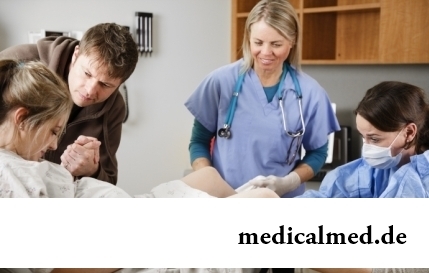
Childbirth is the most important event in life of each woman. We are women we give birth to the new little man on this light. Now the tendency to that was outlined, as men want to participate in labor too. But there is a question and whether it is worth allowing the husbands on childbirth?...
Section: Articles about health
Let's begin with the fact that a separate illness which is called "adjournment of salts", just does not exist. In practice this household name of plank beds...
Section: Articles about health
It is possible to find the extensive range of fruit and vegetables in modern shops. Russians already got used that on counters there is not only a seasonal domestic production, but the vegetables and fruit which are grown up in the countries with more comfortable conditions at all seasons of the year...
Section: Articles about health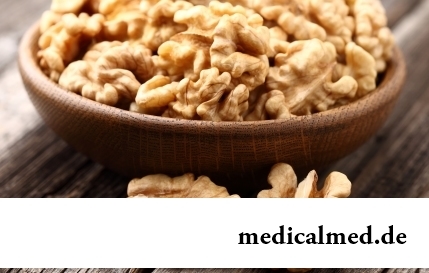
With age in a human body harmful substances collect. We receive them with food and water, at inhalation of the contaminated air, reception of medicines, use of household chemicals and cosmetics. A considerable part of toxins accumulates in a liver which main function is continuous purification of blood. This body begins to knock as any got littered filter, and efficiency of its work decreases....
Section: Articles about health
